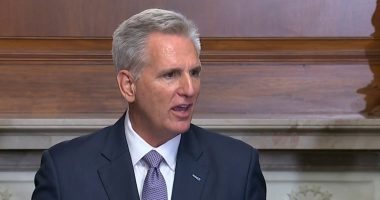
Inside the companies, Facebook has in recent days activated an emergency response team to follow the situation in Afghanistan and assess the Taliban’s use of its products, including its messaging app WhatsApp, according to employees at the social network. Twitter and YouTube have tried to read between the lines of diplomatic cables from world leaders on whether the U.S. government would form a de facto relationship with the Taliban, employees participating in discussions at the companies said.
Yet even when the companies have removed Taliban accounts, the bans have been porous. When Facebook this week blocked the WhatsApp account of Zabihullah Mujahid, a Taliban spokesman, he distributed a new, still active WhatsApp account of another Taliban leader to journalists.
Understand the Taliban Takeover in Afghanistan
Who are the Taliban? The Taliban arose in 1994 amid the turmoil that came after the withdrawal of Soviet forces from Afghanistan in 1989. They used brutal public punishments, including floggings, amputations and mass executions, to enforce their rules. Here’s more on their origin story and their record as rulers.
The Taliban was also easily evading being found by changing the spellings within their hashtags or key terms, and using encrypted apps, such as Telegram and WhatsApp, to seed their messaging and ask for volunteers to translate social media posts into multiple languages, said Ms. Aziz, the independent researcher.
Any dragnet also appears to be mistakenly entangling others who have posted content pushing back against the Taliban. After the news site HumSub published an article this month to counter a local newspaper column praising another Taliban founder, Mullah Omar, Facebook removed the article, said Adnan Kakar, an editor at HumSub.
“Immediately, we got a message that, ‘Your article is removed because of standards on dangerous individuals and organizations,’” he said. Mr. Kakar said his personal account and HumSub’s Facebook page were also suspended for 24 hours and blocked from livestreaming and advertising for 60 days. When he challenged Facebook, he said he got no response.
Compounding the difficulties facing the platforms, many of the new pro-Taliban accounts have been careful to post content that does not openly espouse violence or hate speech, which would violate the companies’ rules.
On Twitter, a new account named for the Taliban’s unrecognized state, the Islamic Emirate of Afghanistan, surfaced on Aug. 8. The account, with more than 400 followers, has posted two videos showing military maneuvers by the Taliban. But neither video featured violent or graphic images or directly called for violence.
Source: | This article originally belongs to Nytimes.com









